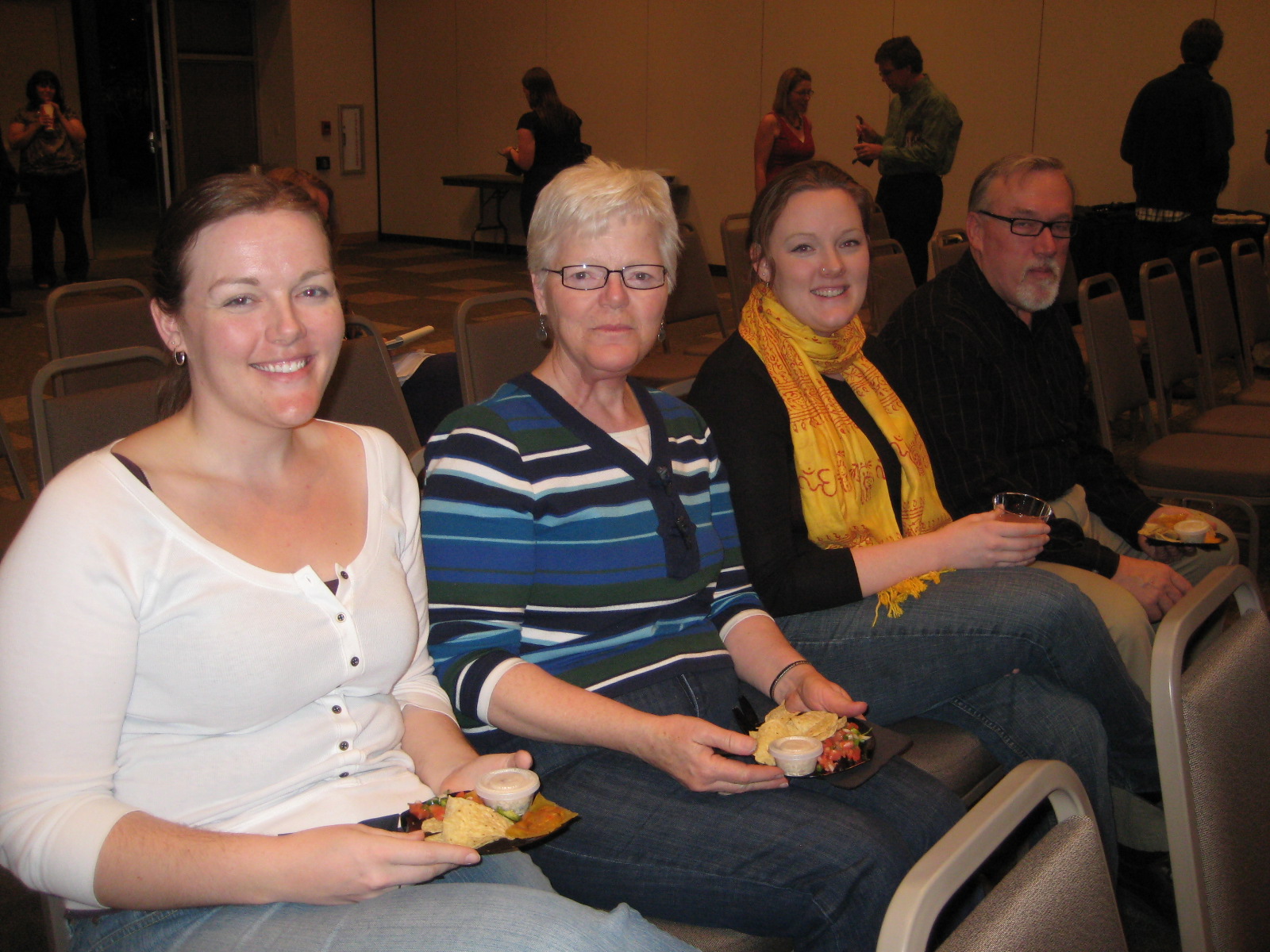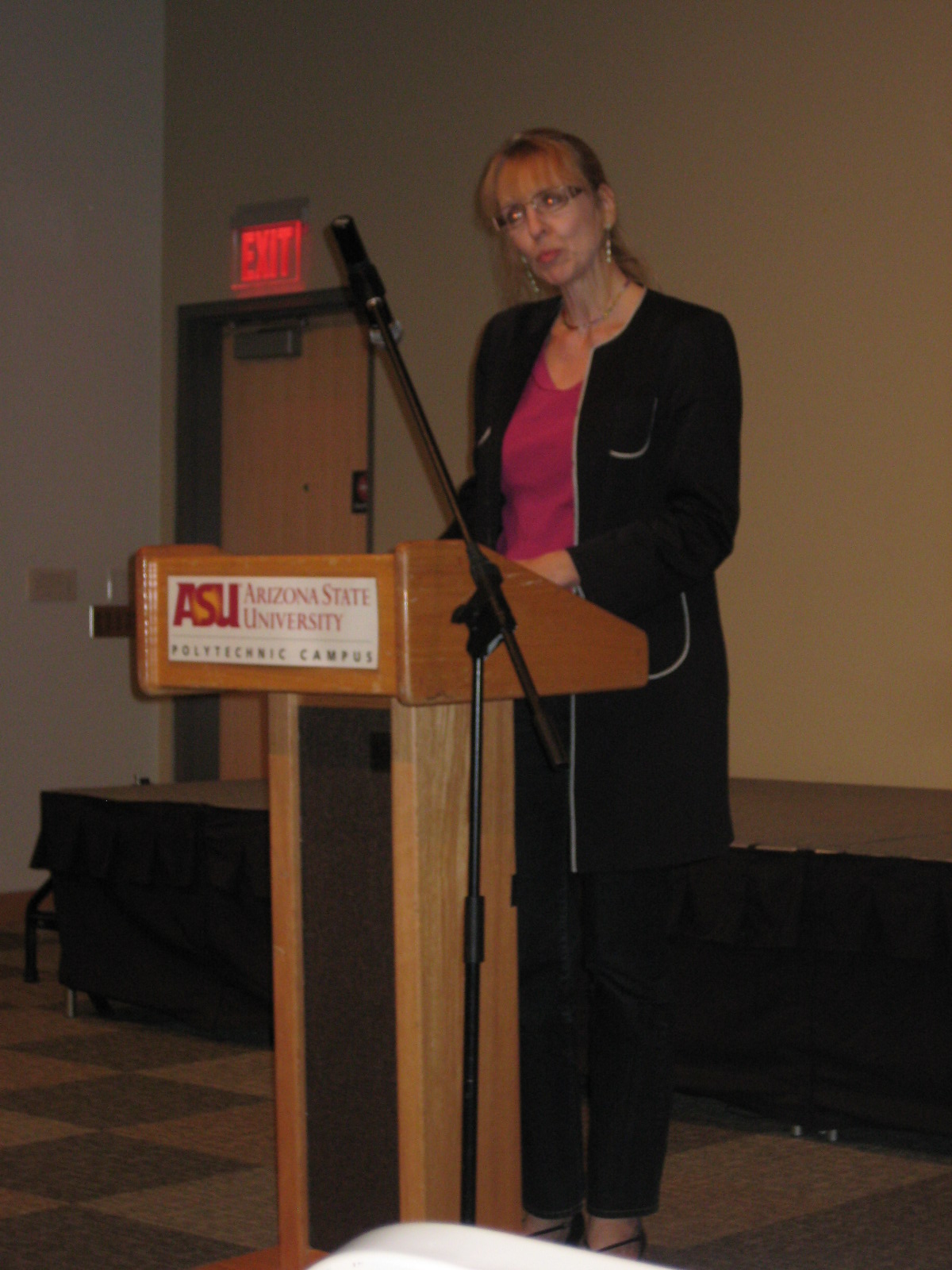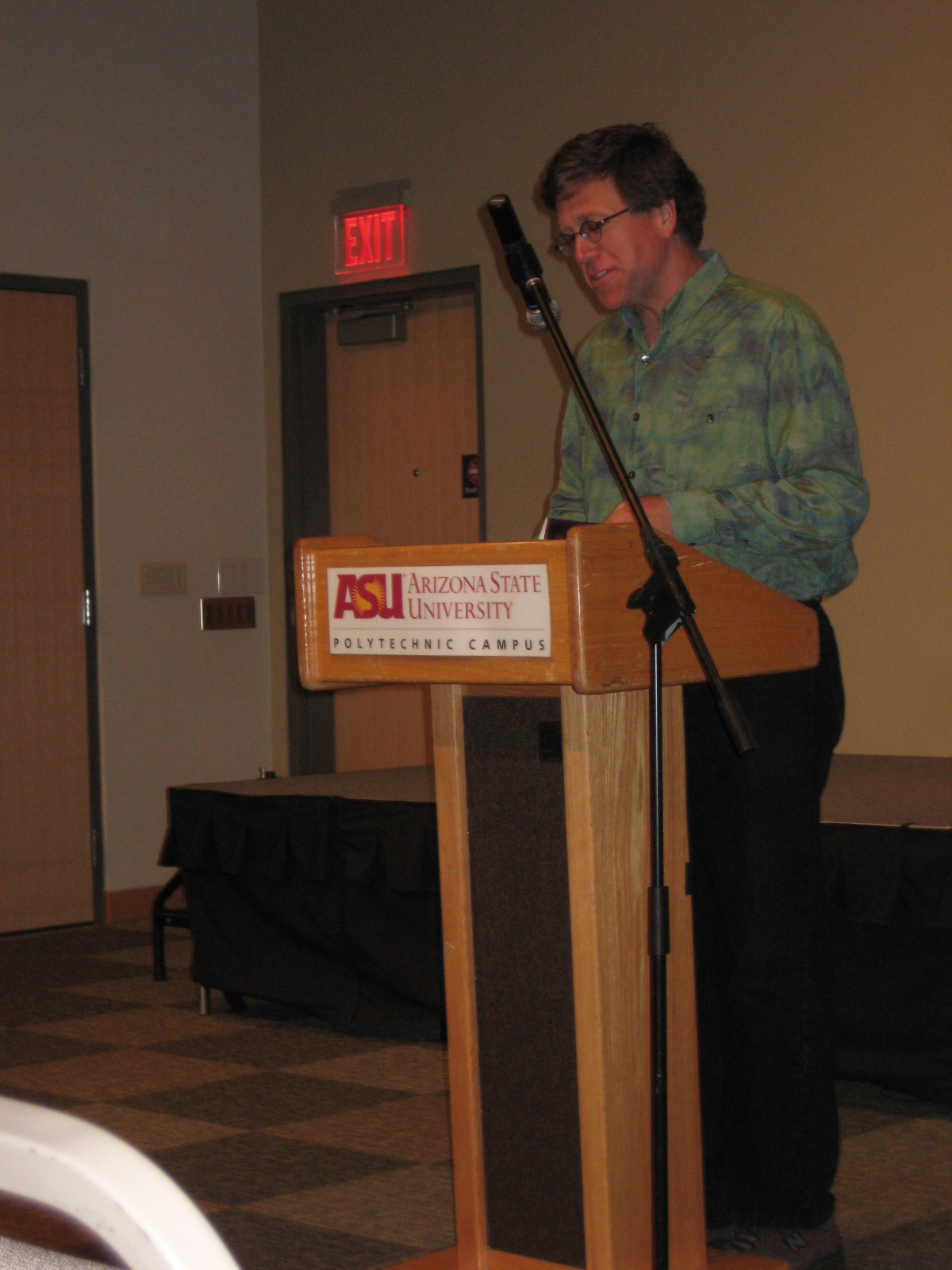 Lisa Mortensen is a third year Imaginative Writing major at ASU.
Lisa Mortensen is a third year Imaginative Writing major at ASU.
What is your position with Superstition Review and what are your responsibilities?
Reading Series Coordinator—I set up Superstition Review’s three readings for the semester.
Superstition Review: How did you hear about Superstition Review and what made you decide to get involved?
Lisa Mortensen: My Fiction 288 professor announced to our class about the possibility of working with Superstition Review. I was super excited to work on a project which promoted literature and art, not to mention the enthusiasm I had about being part of a publication which is created by undergraduate students of ASU.
SR: What are you hoping to take away from your Superstition Review experience?
LM: After working with Superstition Review I hope to take away the knowledge and experience necessary to work for a publishing house as an Acquisitions Editor.
SR:Describe one of your favorite literary or artistic works.
LM: Although I have specific authors in mind when I think about my favorite literary works, I must take a moment to talk about three genres that have recently demanded my attention: The Short, Prose Poetry, and Flash Fiction. At first glance, or read, it would be easy to call these genres simplistic, because of their length. However, a closer inspection reveals thoughtful and careful word choice, where quality of word takes over quantity. The powerful words, images and thoughts of the narrator are coming at you so quickly that your attention never wanders or strays from the piece. The effect is like being in the moment with the narrator when the surprises and twists come along, as well as the reader themselves feeling vulnerable to the raw emotions that come along with those experiences.
SR: What are you currently reading?
LM: In keeping with my newly found favorite genres, I have recently read and highly recommend Judith Ortiz Cofer’s “Volar,” Brian Doyle’s “Two Hearts,” Denis Johnson’s “Crash While Hitchhiking,” Russell Edson’s “Dinner Time,” and Luisa Valenzuela’s “Vision out of the Corner of One Eye.”
SR: What is your favorite Superstition Review section, and why?
LM: I am rarely able to narrow down any choice to just one, therefore I have two favorite sections of Superstition Review and they are the fiction and art sections. The fiction section is my favorite, because the content comes from a variety of authors who offer up memoir, short story, and essay. The art section is also my favorite due to the gallery’s assorted collection of art and artists from around the world. I also appreciated the bios and headshots that went along with each author and artist.
SR: Who would be the Superstition Review contributor of your dreams?
LM: For the fiction writing portion that would be Toni Morrison, and as far as art goes I would love to see more collage artists featured.
SR: What other position(s) for Superstition Review would you like to try out?
LM: Art or Fiction Editor
SR: Do you prefer reading literary magazines online or in print?
LM: Until recently I would have said that I prefer literary magazines in print. However after a recent assignment that had us review several online literary magazines I now appreciate the convenience of locating articles of art and literature online. There isn’t the delay of snail mail or money spent on gas to retrieve the latest literary works. Which leads me to my other appreciation of online literary magazines; they are very eco-friendly!
SR: Do you write or create art? What are you currently working on?
LM: Recently, I’ve combined my love of writing and art and created a collage called, “Élan Vital” which is made of words and pictures. I am an Imaginative Writing major at ASU’s Polytechnic Campus, therefore I am always creating pieces of fiction, mostly on demand. Nevertheless, I actually enjoy both writing fiction and drawing in my spare time. In fact, this is only the second semester where I haven’t taken any art classes since high school.
SR: Besides interning for Superstition Review, how do you spend your time?
LM: I have adopted two children, one from Ethiopia and another from the US foster care system; so much of my spare time is spent with them. However, in the precious moments that I have to be child-free I enjoy riding motorcycles, traveling, having book club discussions, going to concerts, theater and art shows, singing, yoga and spoiling myself with an occasional spa day.
SR: What is your favorite mode of relaxation?
LM: My favorite mode of relaxation is meditation, for sure. Since I have a hard time shutting my mind off, I grab my headphones and go sit in a darkened room while I listen to soothing music or Emmett Miller’s meditation MP3s. I’ve also found that shutting down my cell phone for an hour works wonders too.
SR: Where do you see yourself in 10 years?
LM: In 10 years I definitely see myself as a credible and published author. I also see myself owning a publishing company and teaching Creative Writing to be used as a way of therapy. I realize that this is a lot to accomplish, but I think 10 years is a reasonable enough time to attain all of my goals.








